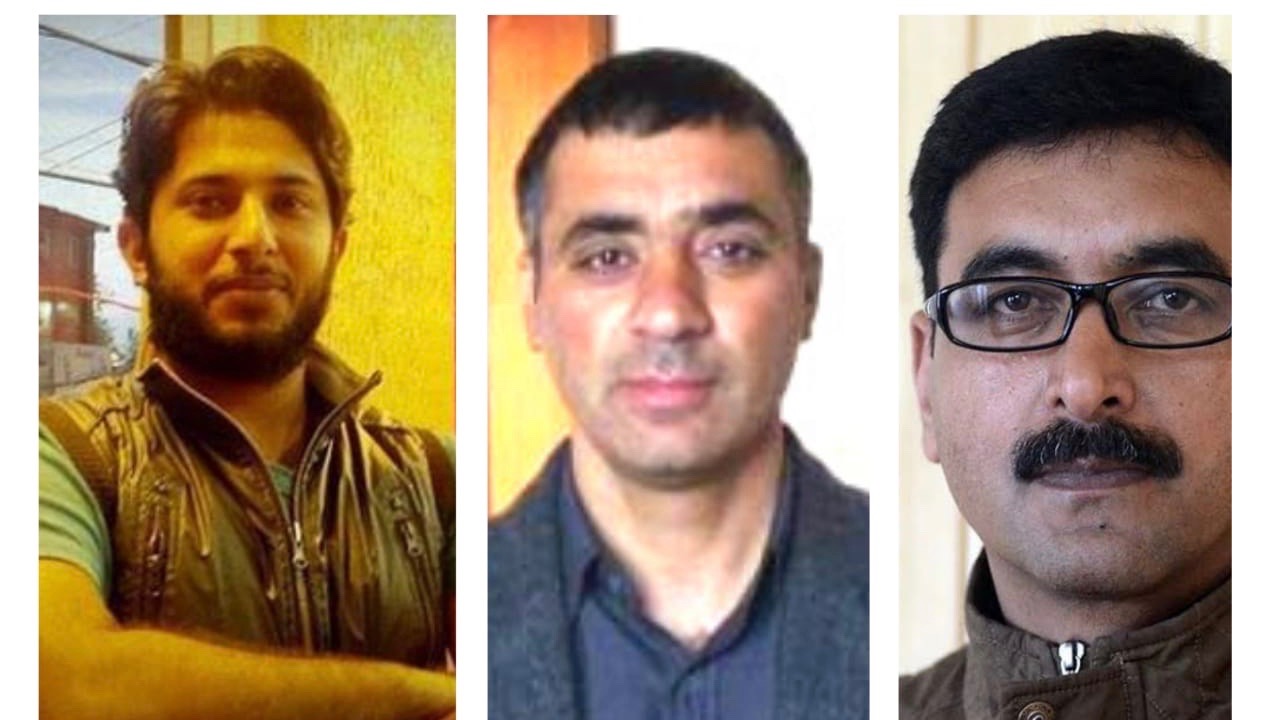Following police raids in the houses of four senior journalists in Srinagar last week, several Kashmir-based media associations condemned the ongoing crackdown on the press, saying that such incidents showcase how authorities in Jammu and Kashmir are targeting journalists. They stressed that the pressure on journalists in Kashmir has mounted to “unprecedented levels” in the past few years.
Among the media associations which backed the statement condemning the police raids were the Journalist Federation of Kashmir (JFK), Kashmir Working Journalists Association (KWJA), Kashmir Press Photographers Association (KPPA), Kashmir Press Club (KPC), Kashmir Union of Working Journalists (KUWJ), Kashmir Journalist Association (KJA), and Kashmir Video Journalist Association (KVJA).
The statement condemned the police raids targeting senior journalists Hilal Mir (44), Shah Abbas (50), Showkat Motta (52) and Azhar Qadri (34). While Mir, Abbas and Motta have been covering Kashmir for over two decades, Qadri has covered the region for over a decade. All of them have worked with reputed media organizations, including international media outlets.
On September 8, the paramilitary CRPF forces laid a massive cordon around the localities of Bemina, Raj Bagh and Lal Bazar in Srinagar city before the raids were carried out by the police. The police reportedly ransacked the houses of at least two of the journalists. They also confiscated mobile phones, laptops, other gadgets, and even travel documents from the journalists.
“I asked the police officials to provide the context for the raid but they refused to give any. Even though the paramilitary stayed outside, scores of police searched every corner of my house and later took the desktop, iPads and mobile phones of my family members including my 14-year-old son,” said Motta, who has formerly worked with prominent national and local newspapers.
The journalists were then summoned to a Srinagar police station where they were questioned for several hours by the security personnel. They were asked to return the next day, on September 9, and were held again till the evening.
“When police raided my house in Bemina early in the morning they ordered all of my family to remain in the kitchen while they began searching the entire house. Besides the gadgets, pen drives and hard disks the police took the travel documents of my wife and mine,” Mir confirmed.
The Committee to Protect Journalists (CPJ) and Reporters Without Borders (RSF) also condemned the September 8 raids. The “police in India-administered Jammu and Kashmir should stop raiding the homes of journalists and immediately return any seized electronic devices,” the CPJ said.
Since Jammu and Kashmir was converted into two union territories with the abrogation of Article 370 and 35(A) by the union government in August 2019, incidents of targeting of journalists, including structural and direct harassment and intimidation by authorities, have intensified.
Dozens of journalists have been “questioned, summoned, harassed and even physically assaulted by the authorities under the garb of various ‘fictitious charges’ since 2019,” the journalists’ statement said.
“Several journalists, especially for the last two years, were… summoned, questioned and even booked under controversial laws while many were even asked to reveal their sources. The cases of harassment against Kashmiri journalists are growing with each passing day and no words are enough to indicate the levels of strain the media is facing,” the statement added.
Last year in October, the National Investigation Agency (NIA) raided at least 10 locations in Srinagar and Bandipora, targeting NGOs and individuals, including the office of the Association of Parents of Disappeared Persons and the residence of Jammu and Kashmir Coalition of Civil Society coordinator, Khurram Parvaiz.
The residence of Parvaiz Bukhari, a journalist with Agence France-Presse, and the offices of two NGOs, Athrout and GK trust (owned by local daily Greater Kashmir), were also raided in Srinagar.
The majority of the local newspapers in Kashmir as well as online media outlets have been “rendered meaningless” with the strict-censorship implemented through the Media Policy 2020, which increases the government’s powers to censure journalists and restrict the media.
“The assault on freedom of press in Kashmir continues and it appears condemnations made in each case by media groups have fallen on deaf ears in absence of any respite,” the statement said.
“This entire paranoia of police carrying out raids on senior journalists’ houses seems more like a political case and a pre-planned project against them. The main idea is to send a message of fear and harassment among the entire fraternity for not toeing the line of the government,” a Srinagar-based journalist, who wished to remain anonymous, stated.





